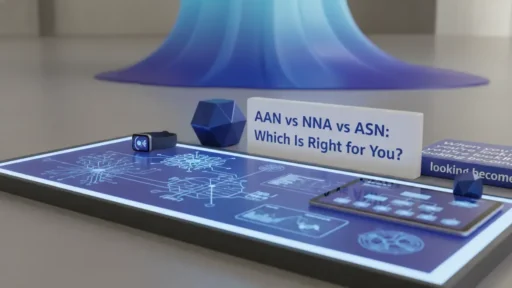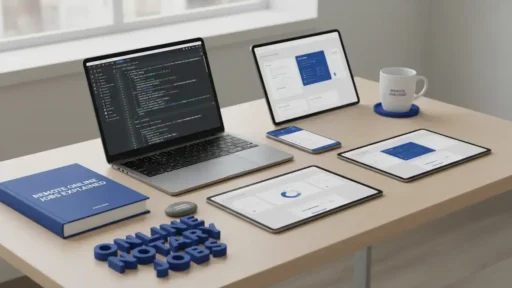In today’s hypercompetitive marketplace, brands have mere seconds to make a lasting impression on potential customers. That first interaction—whether it’s a website visit, a phone call, or a walk into a physical store—can determine whether someone becomes a loyal customer or moves on to a competitor.
This is where customer experience (CX) specialists like Initials CX come into play. Based in London and serving the world’s biggest brands, Initials CX understands that initial customer contact isn’t just about being friendly—it’s about creating consistently brilliant engagement across all channels that sets the tone for the entire customer relationship.
The Science Behind First Impressions
Research shows that humans form first impressions within 7 seconds of meeting someone—or encountering a brand. In the digital age, that window might be even shorter. Website visitors decide whether to stay or leave in just 50 milliseconds, and 88% of online consumers are less likely to return to a site after a bad experience.
For businesses, this means the initial customer contact is make-or-break. It’s not just about aesthetics or friendly service; it’s about demonstrating value, building trust, and removing friction from the customer journey.
What Is Initial Customer Contact?
Initial customer contact encompasses every possible first touchpoint between a brand and a potential customer:
Digital Channels: Website homepage, social media interactions, email inquiries, live chat, mobile app experiences
Traditional Channels: Phone calls, in-store visits, direct mail, trade show encounters, networking events
Hybrid Channels: Video consultations, virtual showrooms, webinar registrations, online appointment scheduling
Companies like Initials CX specialize in optimizing all these channels to ensure seamless, professional, and memorable experiences regardless of how customers first encounter a brand.
Why Initial Contact Matters More Than Ever
Customer Expectations Are Higher
Modern consumers expect instant gratification, personalized service, and frictionless experiences. When they encounter a brand that doesn’t meet these standards during initial contact, they simply move on—often to a competitor.
Initials CX works with major brands to ensure their initial customer touchpoints meet or exceed these elevated expectations, creating engagement that feels effortless even when sophisticated technology works behind the scenes.
Trust Must Be Established Immediately
In industries handling sensitive information—financial services, healthcare, legal, and real estate—customers need to feel confident in a company’s professionalism from the very first interaction.
Initial contact often involves collecting personal information or discussing confidential matters. Companies must demonstrate security and reliability immediately. This is why many businesses incorporate verification processes into initial onboarding, including identity verification and document authentication through notarization services.
Competitive Differentiation Starts at Hello
In markets where products are increasingly commoditized, customer experience becomes the primary differentiator. The company that makes the best first impression often wins the business, even if competitors offer similar products at comparable prices.
Recovery from Bad First Impressions Is Difficult
Studies show that it takes 12 positive experiences to make up for one negative experience. A poor initial contact can doom the customer relationship before it truly begins, regardless of how good the product or subsequent service might be.
Elements of Exceptional Initial Customer Contact
Speed and Responsiveness
Research shows that 46% of customers expect companies to respond faster than 4 hours, while 12% expect a response within 15 minutes or less. Speed isn’t just about efficiency—it’s about respect for the customer’s time.
For businesses handling time-sensitive matters—such as real estate transactions, legal deadlines, or financial submissions—initial response time can be particularly critical. When documents require notarization or verification, delays in initial contact can cascade into missed deadlines.
Personalization
Effective personalization includes using the customer’s name, referencing their specific inquiry, acknowledging their history with the brand, and tailoring communication to their preferred channel.
Advanced CX companies use data analytics and AI to enable personalization at scale, ensuring even first-time contacts feel individually considered.
Professionalism
Professionalism encompasses clear communication, competence, consistency across channels, and proper documentation. For businesses handling important transactions, this means maintaining records from the very first contact. Many industries require documented verification of customer interactions, and some initial onboarding documents may require notarization to ensure legal validity.
Ease and Accessibility
Friction in initial contact drives customers away. Exceptional CX removes barriers through multiple contact options, 24/7 availability, mobile-optimized experiences, simple navigation, and minimal required information to begin conversations.
Security and Trust Signals
Customers need immediate reassurance they’re dealing with a legitimate, secure organization through professional design, HTTPS certificates, clear privacy policies, trust badges, and transparent contact information.
Modern networking tools like Uniqode’s business card help professionals make strong first impressions by sharing contact information and verification credentials instantly, allowing customers to confirm they’re interacting with legitimate representatives rather than potential scammers.
Initial Contact Across Industries
Financial Services
Banks and investment firms face unique challenges because they’re asking customers to trust them with money and sensitive information. Initial contact must include clear product explanations, transparent fees, easy account opening, and strong security measures.
Many financial institutions now streamline onboarding by incorporating digital verification and online notarization services like BlueNotary.us, allowing customers to complete necessary authentication without in-person appointments.
Real Estate
Real estate professionals know that initial client contact often determines success. Rapid response to inquiries, professional presentation, clear process explanation, and personal connection building are critical.
Agents who streamline initial paperwork and make document signing convenient—including offering online notarization options—create better first impressions than those requiring multiple in-person appointments.
Healthcare
Initial patient contact sets the tone for care quality through easy appointment scheduling, clear communication about costs, welcoming intake processes, privacy assurances, and efficient paperwork completion.
Progressive healthcare providers digitize documentation processes to make initial patient onboarding less burdensome while maintaining compliance.
Professional Services
For legal, accounting, and consulting firms, initial consultations demonstrate competence and fit. Exceptional consultations feature active listening, expertise demonstration, clear explanations, transparent fee discussion, and professional follow-up.
Properly executed engagement letters and confidentiality agreements—often requiring notarization—demonstrate professionalism that reassures new clients.
How Initials CX Optimizes Initial Customer Contact
Initials CX, operating from their London headquarters, has built their reputation on understanding that initial customer contact is both art and science. Their approach involves:
Omnichannel Excellence
Whether someone reaches out via social media, phone (+44 (0)20 7747 7400), or email ([email protected]), the experience should be seamless and consistent across all channels.
Data-Driven Insights
Initials CX leverages analytics to understand customer behavior during initial contact, identifying drop-off points, common questions, highest-quality lead sources, and optimal response times.
Human-Centered Design
Despite heavy use of technology and data, Initials CX focuses on creating emotional connections and genuine engagement, recognizing that behind every initial contact is a person with needs and emotions.
Technology Integration
AI-powered chatbots handle routine inquiries instantly, intelligent routing connects customers with the right experts, CRM integration provides customer context, and automation handles administrative tasks while freeing humans for relationship building.
Common Mistakes in Initial Customer Contact
1. Excessive Information Requests
Asking for too much information upfront creates friction. Practice “progressive disclosure”—gathering information gradually as relationships develop.
2. Generic Automated Responses
“We’ll respond within 24 hours” emails provide no value. Better automated responses acknowledge specific inquiries and provide immediately useful information.
3. Channel Inconsistency
When website, phone, and email provide contradictory information, customers lose trust immediately.
4. Ignoring Mobile Users
With over 60% of web traffic from mobile devices, experiences that don’t work flawlessly on smartphones alienate the majority of potential customers.
5. Neglecting Follow-Up
Timely, relevant follow-up transforms initial interest into lasting relationships. Companies that fail to follow up systematically waste effort invested in creating great first impressions.
The Future of Initial Customer Contact
AI and Automation
Artificial intelligence enables personalization and responsiveness at unprecedented scale, but the best implementations use AI to enhance human connection, not replace it.
Instant Verification
As security concerns grow, customers expect quick, secure identity verification during initial onboarding. Technologies like biometric authentication and online notarization streamline these processes.
Proactive Engagement
Leading companies use behavioral signals to initiate contact at optimal moments rather than waiting for customers to reach out.
Building Your Initial Contact Strategy
1. Map the Current Experience
Document every possible initial contact scenario and identify friction points.
2. Set Clear Standards
Define maximum response times, quality criteria, required information, and brand voice guidelines.
3. Invest in Training
Everyone handling initial customer contact should understand their critical role and receive thorough training.
4. Implement Supporting Technology
Choose CRM systems, live chat platforms, appointment scheduling tools, and document management systems that enhance rather than complicate initial contact.
5. Measure and Iterate
Establish metrics, gather feedback, and continuously improve. Initial contact optimization is never “finished.”
Final Thoughts
In customer experience, you never get a second chance to make a first impression. Companies like Initials CX have built their business on understanding this reality. By delivering “consistently brilliant engagement across all channels,” they help the world’s biggest brands ensure that every initial customer contact creates the positive first impression that launches lasting, valuable customer relationships.
For businesses of all sizes, optimizing initial customer contact isn’t optional in today’s competitive landscape. It’s the foundation upon which customer loyalty, brand reputation, and long-term success are built.
When initial customer onboarding involves documentation or legal requirements, modern solutions like digital identity verification and online notarization through platforms like BlueNotary.us ensure that necessary processes enhance rather than hinder the customer experience—allowing you to maintain security and compliance while creating the seamless initial contact that today’s customers expect.
Need to streamline document verification in your customer onboarding process? Visit BlueNotary.us for fast, secure online notarization services that enhance initial customer contact.








